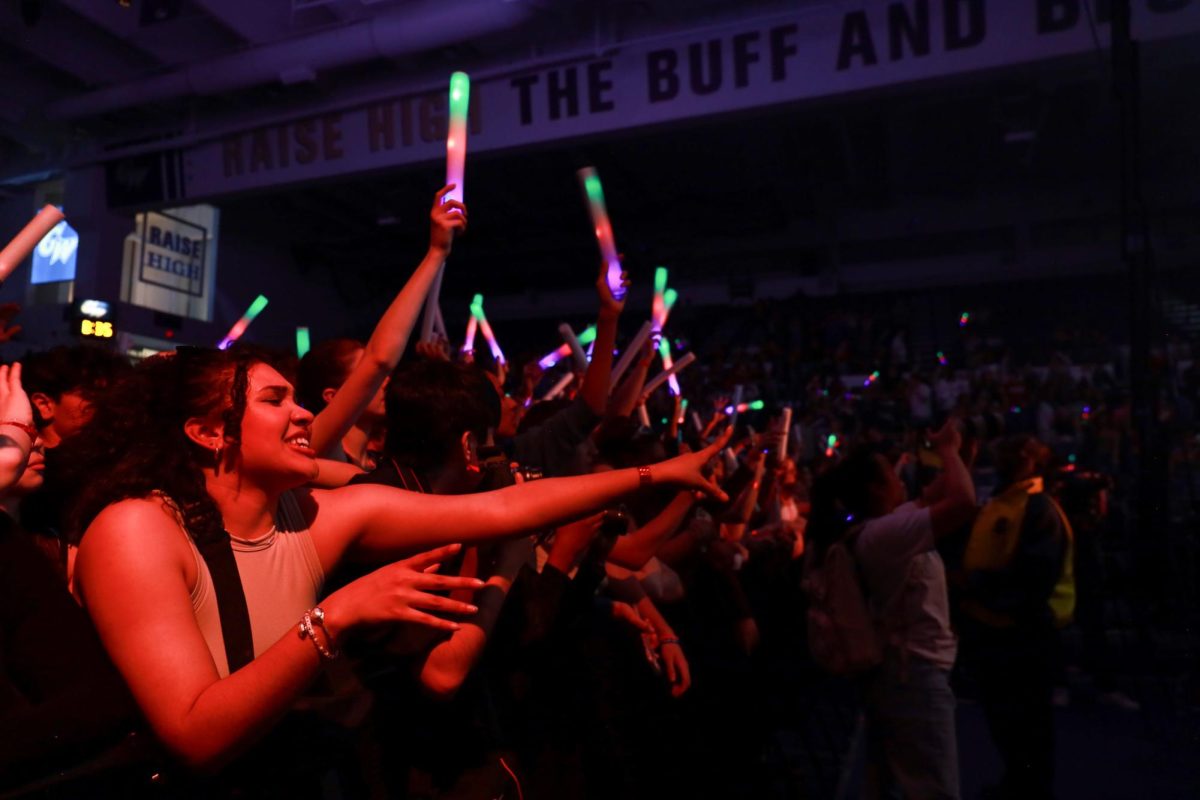Forbidden Planet Productions decided to recreate more than just the real world setting in this weekend’s “Butterflies are Free” – the theater org decided to recreate what it’s like in the world for the blind.
Under the direction of Elizabeth Hay, Forbidden Planet Productions opened Leonard Gershe’s “Butterflies Are Free” this weekend, a story about the blind Don Baker, the challenges he faces and his emerging independence.
After spending most of his childhood coddled by an overprotective mother, Don leaves home and leases a New York City apartment. He is caught off-guard when the rambunctious Jill Tanner moves in next door and shows an interest in him. With only four characters, including Mrs. Baker, Don’s uppity mother, and Ralph, Jill’s ritzy beau, the play is what Hay called “a character-driven show.”
“You have to create each individual personality,” Hay said, commenting she was proud of her actors and all they had accomplished. After seeing it performed in a scene study class at HB Studio in New York City, Hay said she selected this script because the characters are so well-developed.
“The main point of the show is how even with a disability everyone has a complete heart and can think and feel the same,” sophomore Arjun Awasthi, who plays Ralph, said.
Awasthi pointed out that the play, which opened on Lisner Downstage, deals with all different sorts of disabilities: “Don with his blindness, Jill with her escapism, Mrs. Baker with her dependencies and, to an extent, Ralph with his conceitedness.”
After FPP was unable to get the rights for John Logan’s play “Red,” “Butterflies Are Free” had to be cast and rehearsed in a little over a month, giving sophomore Caldwell Butler, who plays Don, a limited amount of time to learn to act without sight.
“Doing things that are detailed while blind is very challenging,” Butler said.
Because the other characters are sighted and Don is not, Butler said he had to learn to respond to the other actors in a completely different manner.
“I didn’t look in anyone’s face directly the whole time,” Butler said. “I had to gauge things off their voice like a blind person would.”
During the rehearsal process, Hay, a former Hatchet reporter, insisted Butler wear a blindfold to get a better feel for a sightless environment.
“Even if I had gotten used to the space, I would be knocking myself around. With us, our process is visualize, approach and touch, but for blind people it’s the opposite,” Butler said, noting the task became all the more difficult when the rehearsal space kept changing.
Junior John Goben, the technical director for FPP and the set designer for the show, conceptualized a blind person’s world in order to create the set.
“The most challenging part was creating an environment that a blind person would be able to live in,” Goben said.
The other characters gave their actors new experiences as well.
“Jill is endearing with her attempts to connect with everyone and everything, her ditziness and her constant questioning,” said Eve Kenneally, who plays Jill.
Constantly bouncing around the set and prodding into everyone’s business, Jill embodies the free-spirited, more confident person Don hopes to be. Ralph, on the other hand, represents all Don wants to avoid.
Ralph strolls into the plot in the play’s second half, flaunting a flashy ’70s-era T-shirt and a wide, pompous smile, riling up the audience with many laughs.
“What I love about Ralph is that he is the opposite of who I am as a person,” Awasthi said. “He is loud, brash, abrasive and rude, and yet all of what he is has been created by me and comes from somewhere within me.”





